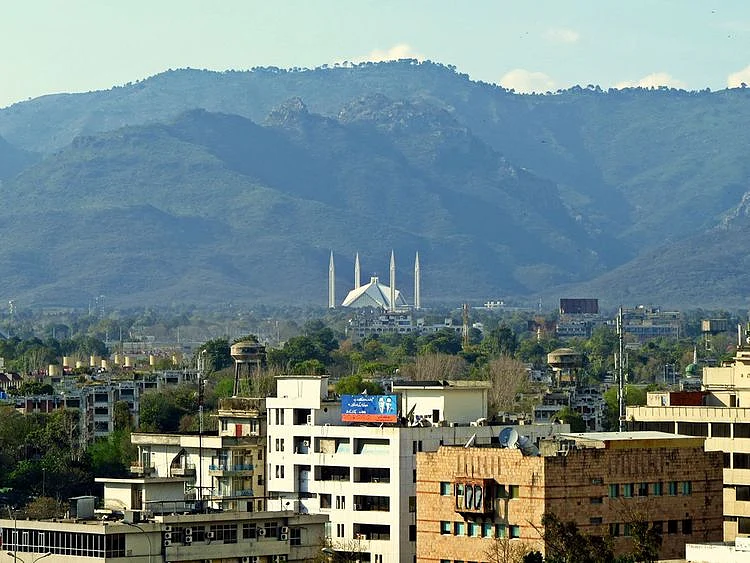Pakistan responds to US climate summit snub with commitment to environment
Islamabad says its green initiatives are well accepted and appreciated around the world

Also In This Package
Photos: UAE Polio Vaccination Campaign in Pakistan
Pakistan's 'Charlie Chaplin' bringing joy in Peshawar
Pakistan's Chaplin aims to raise a smile in bleak times
Photos: Pakistan begins vaccination of senior citizens
In Pictures: Pakistan begins vaccine roll-out
Pakistan and South Africa train for 1st Test in Karachi
Islamabad: Disappointed at not being invited to the upcoming US climate summit, Pakistani officials said the country remains “fully committed” to addressing climate change and its green initiatives have been “well accepted and appreciated around the world.”
Pakistan’s Foreign Office spokesperson said the US climate change summit “brings together leaders from countries responsible for approximately 80 per cent of global emissions” while noting that “Pakistan is one of the lowest emitters with less than one per cent of the global emissions” despite being one of the most affected countries by climate change.
Islamabad’s response came after social media rebuke as the US President Joe Biden administration ignored Pakistan at the Leaders Summit on Climate (April 22-23) in which the Biden invited 40 world leaders after the US rejoined the Paris climate accord which former US President Trump abruptly withdrew from.
Recognized globally
“Pakistan’s landmark initiatives like the Billion Tree Tsunami have won international acclaim, including from the World Economic Forum,” FO spokesperson Zahid Hafeez Chaudhri said, referring to the massive plantation drive spearheaded by Prime Minister Imran Khan’s government.
Responding to the US snub and social media speculations, PM’s special aide on climate change Malik Amin Aslam, described the US virtual moot as a forum “to bring leading global polluters at one platform to work out strategies to protect depleting nature and biodiversity” and not an international climate forum to decide future decisions on environmental conservation. “Pakistan can invite those 40 countries for a global climate change summit and extend ground-based tested and successful solutions being implemented in the country to address climate change,” he said.
Detailing Pakistan’s contributions to the global fight against climate change, Aslam said Pakistan’s 10 Billion Tree Tsunami project and green jobs initiatives have been recognized by the international environmental conservation organizations such as WWF, IUCN, WEF and leading countries. Pakistan was also co-chair of Green Climate Fund (GCF), key financial facility to provide finances to developing countries to implement green projects. The current government has allocated Rs10 billion for climate change projects for the year 2020-21.
Pakistan’s leadership role in climate change mitigation and adaptation is also being replicated by several countries. The Kingdom of Saudi Arabia recently announced a 10 billion tree plantation programme following in the footsteps of Pakistan’s 10 billion tree afforestation project and “Pakistan has also offered the Saudi government all sort of technical support for successful implementation of the programme” Amin Aslam said.
Khan offers support
Pakistan’s Prime Minister Imran Khan lauded Saudi Arabia’s Green Kingdom and Green Middle East drives and offered support and expertise for the green projects. The two initiative including “the plantation of 10 billion trees in the Kingdom and its upscaling to 50 billion in the region as part of Green Middle East Initiative, are highly commendable,” Pakistani premier said in a letter to Crown Prince Mohammed bin Salman on Monday.
Inviting the Kingdom to collaborate on climate change initiatives with Pakistan, Khan said: “We would also be happy to share experiences, knowledge and lessons from our nature-based approaches and initiatives.” He also praised the new renewable energy projects announced by Saudi Arabia, the world’s top crude oil exporter, to reduce carbon emissions by generating 50 percent of its energy from renewable sources by 2030.
Sign up for the Daily Briefing
Get the latest news and updates straight to your inbox
Network Links
GN StoreDownload our app
© Al Nisr Publishing LLC 2026. All rights reserved.